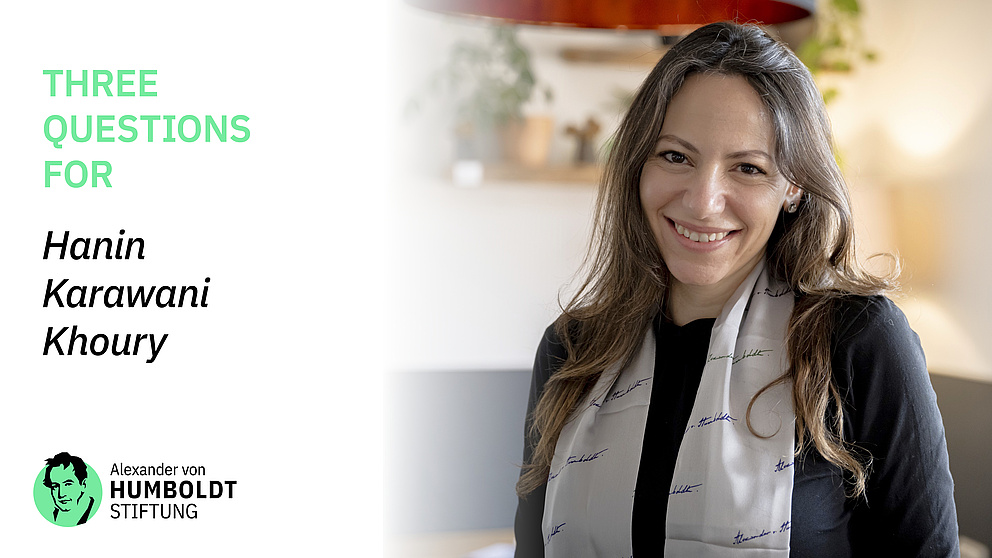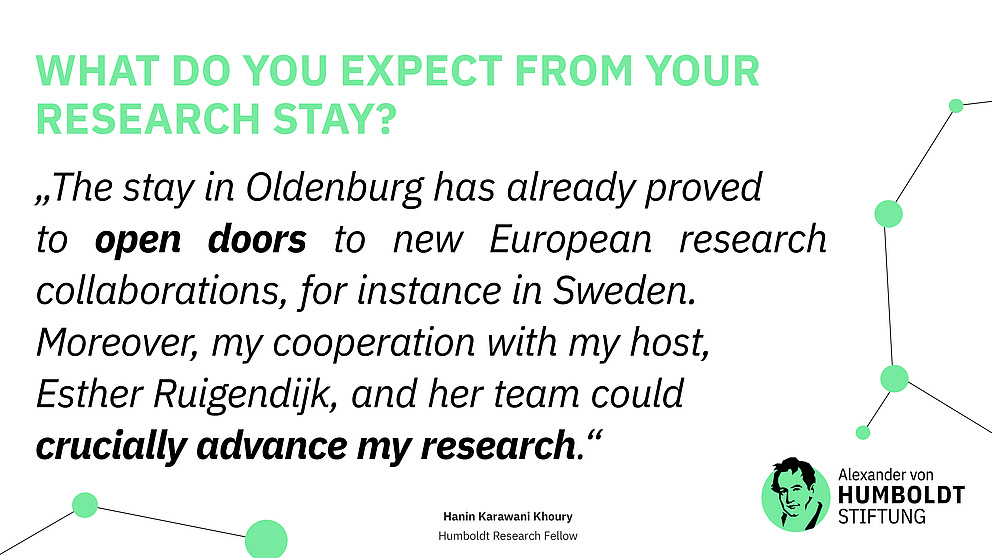
Contact
Press, Communications and Marketing
Tel.: +49 228 833-144
Fax: +49 228 833-441
presse[at]avh.de
Three questions for: Hanin Karawani Khoury
Hanin Karawani Khoury is a good listener – when working in the speech and music laboratory of the Hearing4all cluster of excellence at the University of Oldenburg and when regularly talking to a student who has just become a mother. “I want my students to know that having a family and an academic career are not mutually exclusive. You need someone to keep reminding you that the world of science may be hard, but you can be successful even with a child.” She herself has two such people around her, without whom she would never have followed her career path from a clinical audiologist and speech pathologist into academia. “My mother was an important role model. She is a judge and was one of the first Arab women to study law at the Hebrew University of Jerusalem. She always encouraged me, as did my older sister who is a linguist at the University of Konstanz. She kept motivating me to seek my doctorate and move into research.”
Today, Hanin, the neuroscientist and mother of three is the head of the AudioNeuro Laboratory in the Department of Communication Sciences and Disorders at the University of Haifa. Currently a Humboldt Research Fellow, she moved to Oldenburg with her family in September 2023 to conduct research there. As a member of the team headed by her host, Esther Ruigendijk, she explores how early language experience and multilingualism shape a person’s brain function and how this impacts listening comprehension. “Especially people who are multilingual are more likely to have problems understanding speech when there is background noise,” says Karawani Khoury. If untreated, hearing loss could accelerate the decline in cognitive and neuronal functions in older adults, and lead to depression. “By 2050, every fourth person worldwide could be living with impaired hearing. I want to improve therapies and promote older people’s well-being.” Based on her research, she has already developed an auditory training programme that people can use at home. The next step is to discover whether multilingualism has a positive impact on the brain’s ageing process.
Shared experience
An Arab-Israeli, Karawani Khoury herself grew up multilingually. “At home in Jerusalem and later in Haifa we spoke Arabic and Hebrew. I learned German and went to an English school. It was important to my parents that we were open for other cultures” – an attitude that she is passing on to her children, too, who are currently attending the international school in Bremen. “The fact that I can do my research in one of the leading laboratories for auditory and cognitive neurosciences is crucial for my career and opens the doors to new research collaborations. It means a lot to me to be able to share this experience with my family.” Karawani Khoury believes the allowances for partners and children included in the Humboldt Foundation’s fellowships are an important component in improving the situation of women and people with children in science. But one thing is important when spending time working on research in Germany with a child: “You need someone beside you who takes on most of the responsibility for childcare. Unfortunately, the German school system is not made for working women with children. Without my partner, I couldn’t combine research and family.” She is very grateful for her husband's support. “My husband Amir Khoury has always encouraged me in my success. He moved his professional career to the USA for my postdoc and is now taking a sabbatical for our experience in Germany.”
Diverse science world
Karawani Khoury wants women to succeed in research and hold positions of responsibility. “The science world needs our wisdom and empathy.” In Germany she encounters many talented postdocs who could actually be heading their own labs but can’t get a job. “In the German science system there doesn’t seem to be enough space for everyone. I think it’s very sad.” She would like to see a diverse scientific community composed of people of all genders, countries and cultures. “The world around us is getting ever sadder and harder. In our research groups, we should look at diversity as a bonus. Take a look around your labs! If we now start to resolutely employ people who look different and think differently from the way we do, then we are on the path to a diverse science world.”
Author: Esther Sambale




